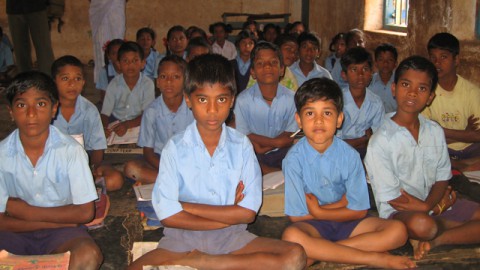
GCED Basic Search Form
Quick Search
Close
You are here
News
What Is 'Global Citizenship Education'?
Post date:
2015/09/30

Alongside the United Nations General Assembly this week, every nation will agree to a new agenda that will drive their development and policies for the next 15 years called the Sustainable Development Goals (SDGs). In addition to covering a wide range of subjects, the SDGs set forth a broad and ambitious agenda for global education that goes well beyond getting all students in school. Simply put, achieving universal access to education is no longer sufficient — it’s also necessary to provide all students with a quality education, one that successfully prepares them for life in the 21st century.
But first — what is global education and what are its implications? In order to introduce this important topic, we’ve prepared a brief explainer:
What is global citizenship education?
The UN’s Global Education First Initiative notes “It is not enough for education to produce individuals who can read, write and count. Education must fully assume its central role in helping people to forge more just, peaceful, tolerant and inclusive societies.” According to the UN, global citizenship education provides the understanding, skills, and values students need to cooperate in resolving the interconnected challenges of the 21st century, including climate change, conflict, poverty, hunger, and issues of equity and sustainability. These same educational outcomes prepare students to be successful in the workplace of the 21st century as well.
How is it related to terms already in use, such as educating for global competence or 21st century skills?
Global citizenship education was included in the SDGs because it already has a broad base of support. Over the past decade, Asia Society has built a national movement in the U.S. around a similar concept called global competence – the knowledge, skills, and dispositions to understand and act on issues of global significance. Global competence includes skills in communication, collaboration, critical thinking, and creativity, which collectively are known as 21st century skills. Globally, efforts to advance peace education, human rights education, and education for sustainable development have grown substantially over the years and also contribute to global citizenship education.
Why are we talking about global citizenship education now?
Global citizenship education is an idea whose time has come. As the world faces ever more complex and critical challenges, it has become a core part of what a quality education looks like in the 21st century. With the adoption of the SDGs, there is recognition that access to this type of education is an equity issue. All young people, regardless of their background, deserve to be prepared for meaningful work in the global economy and to take part in solving the global challenges that impact their lives and communities.
Who is working on global citizenship education?
Global citizenship education is at the forefront of efforts to transform education to provide students with a holistic and well-rounded education that gives them the knowledge, skills, and dispositions they need to succeed in a global 21st century. The UN’s Global Education First Initiative has signed on 16 Champion Countries to catalyze political and financial support for education, including global citizenship education. This group includes China, South Korea, Australia, Bangladesh, and the U.S. International organizations such as UNESCO, OECD, Brookings Institution, and Asia Society, among others, are providing research and resources to support education policymakers and teachers around the world.
What needs to happen next to advance global citizenship education?
The UN has identified several barriers to global citizenship education, including outmoded learning materials and lack of teacher capacity in this area. However, the biggest challenge may be the legacy of the current education system, which was designed for the agricultural era rather than for an interconnected world. With the adoption of the Sustainable Development Goals and the inclusion of global citizenship education as a target for global education, now is the time to connect and leverage the expertise and best practices of practitioners and programs to advance global citizenship education for all students around the world.
For more information, please see the Asia Society Education home page.
URL:
http://asiasociety.org/blog/asia/what-global-citizenship-education
